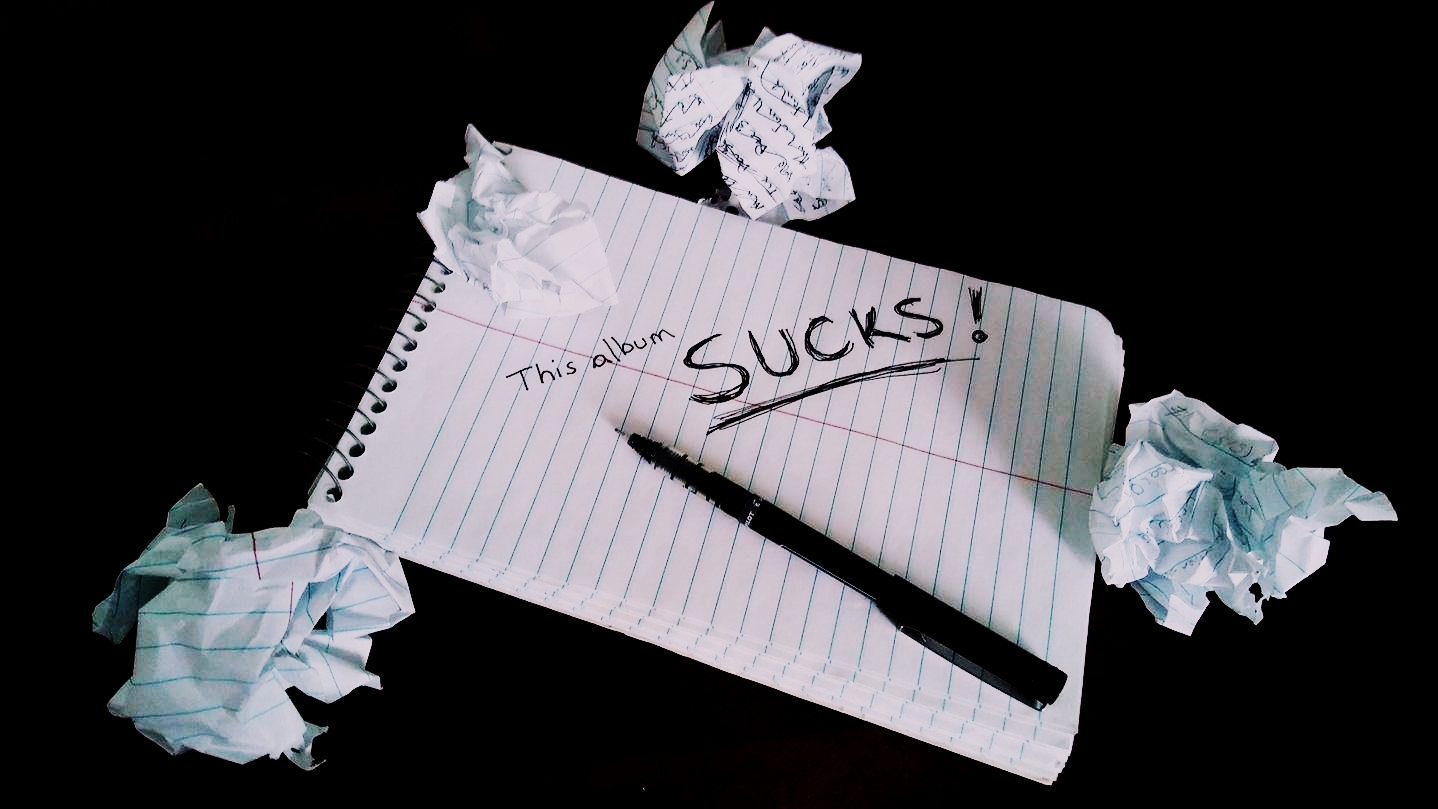There was a time when critics helped decide what and what not to check out in the field of entertainment. Of course, the final say always comes down to the individual, but trusted commentary goes a long way. These days, critics are a little different. With social media acting as the world’s hub, everyone has a personal platform for their own critique. Despite all the negativity in the world, where are the negative music reviews?
By taking a look at the comments section of any article or viral video, you’ll see there’s no shortage of strong opinions.
Any designated area the general public can sound-off seems like a hotbed for praise and criticism. The nature of that particular beast can even lead some to believe music critics are a thing of the past. And while there are fewer famous music journalists than what used to be, the medium isn’t exactly dead. It’s simply shifting into something else altogether.
Today’s biggest artists such as Beyoncé, Taylor Swift, and Radiohead, don’t rely on good reviews to sell their records. Most of them drop their albums out of nowhere, skipping the journalism part of marketing altogether. This isn’t only in part thanks to confidence in their product. It might have more to do with fandom and how it’s shaping the journalistic landscape.

The relationship between artist and fandom has grown to the point where any negative press is immediately shut down or completely ignored.
As a writer, I find it exhausting to cover an album for an A-list artist if it’s something I don’t particularly care for. Sharing my opinion is easy but the inevitable backlash can be difficult. Clicks are nice but establishing a relationship with readers is one of the most important aspects of being a journalist or critic. It’s hard to do that when a less-than-flattering article is met with an angry mob of internet fandom.
People tend to forget it’s sometimes easier to be an artist than a critic. Where an artist says what’s on their mind and it’s done, a critic has to defend each criticism and explain exactly where they’re coming from. This superficial battle of ‘stop hating what I love’ could be the proverbial nail in music journalism.
With negative music reviews becoming few and far between, it’s scary to think of criticism as a guilty pleasure.
A few years ago I wrote a review of a Twenty One Pilots remix album. Not only was it unabashedly negative and ugly, but it isn’t among my strongest work. The comments section of that piece is full of hundreds of fan rebuttals, attacks, and even one person encouraging me to commit suicide! Hows that for dedicated fandom? Even after nearly 3 years, it gets hits daily and (unfortunately) remains one of this publication’s most popular articles.
Earlier this summer I covered Pitchfork Music Festival here in Chicago and wrote one of my personal favorite pieces. The article talked about my love of diversity and nostalgia in the music industry as well as the strong communal aspect of the festival. Unfortunately, it’s also one of my least viewed pieces to date at Bearded Gentlemen Music. The hits that article received in 2 months, doesn’t even come close to what the 3-year-old Twenty One Pilots article pulls in a week. It’s almost as if readers enjoy getting angry with the writer far more than agreeing with them.
At what point did honest criticism become troll culture?
Instead of seeking out honest opinion, the music community now sees negative reviews as entertainment. Sometimes it’s fun to see something you don’t like, getting torn to shreds by a critic. There’s clearly a market for that sort of thing and quite a few bloggers have made a decent living doing just that. But for me, ripping into an artist for releasing something I didn’t like, isn’t critique, it’s trolling. Good writers should strive to be better than that. That’s another reason why negative reviews just might be a rarity these days.
There’s a certain sense of arrogance that comes along with refusing to share an opinion on something you don’t like. A writer can come off as feeling too good to write something negative. As stated above, I don’t like being labeled a troll for writing a bad review and the best way to avoid that is by not writing one. If I’m adamant about despising a certain artist, you already know what my review will consist of before reading it. After all, it’s redundant to state the obvious
Simply put, negative music reviews are dying due to the lack of discussion.
Music reviews should never be the end-all-be-all of opinions but rather a discussion of personal takes. It might be easy for critics to berate artists for terrible albums, but it’s just as lazy to only cover releases they gush over. There’s an old story about David Lee Roth framing a bad review of an early Van Halen show. He claimed the good reviews were validating, but that one bad one reminded him to push himself for better. The writer said something that gave him determination. It was a discussion of one expressing his feelings and the other doing something positive with it.
That’s the very definition of discussion. Without it, artists would never grow. Taking this outside music, people would never grow. It’s impossible to learn anything if you’re lazy or arrogant. Within the past few months, I find myself not wanting to write anything overly negative. Not in fear or upsetting anyone, because I feel like I’m not contributing anything positive by being negative. However, that’s a very hypocritical way of thinking. If an artist requires no press, fandom prohibits negativity and a writer refuses to write nothing but gleaming puff pieces, journalism is dead.



